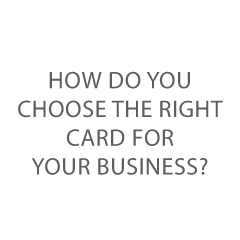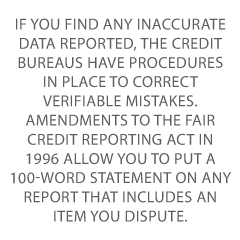
5 Business Credit Cards with Benefits That Will Surprise You
Get Business Credit Cards with Benefits – Check Out Some Unique Perks
There are business credit cards with benefits that go way beyond cash back or a low APR. Come and check out some truly unique perks.
Business Credit Cards with Benefits That Are Unique
Some business credit cards have unique benefits not fitting under any other categories, like low APR or cash back.
Some of these cards enroll you in some sort of unique benefits program. Still others may offer certain purchase discounts. And some of these aren’t quite available yet. Here’s our top 5 and a few honorable mentions.
Keep in Mind
Terms and rates are subject to change. In particular, many annual percentage rates tie to the Prime Rate. Banks and other credit providers sometimes add or drop features, or even credit cards. As always, the best source for all credit card information will be right on the provider’s website.
Business Credit Cards with Benefits Where You Can Buy Crypto: Honorable Mention – Gemini Credit Card from MasterCard (personal)
The Gemini credit card came about after Gemini’s recent acquisition of Blockrize. Blockrize already had a cryptocurrency credit card in the works. Buy crypto with this soon to arrive credit card, slated to be available in the summer of 2021.
With Gemini Earn, you can earn interest on your cryptocurrency. This compounds daily, up to 7.4% annual percentage yield. Until the card is issued, it will be hard to assess who it would be best for. Although backing from MasterCard is good news.
Unique Benefit Credit Cards: Honorable Mention – Mercury Bank MasterCard (personal)
Mercury is an angel-funded bank serving startups. Pay a $0 or $79 annual fee. Transfer APR is $5 or 4% of amount of each transfer, whichever is more. There are cashback rewards for the Mercury Bank MasterCard, but they are not specified on the bank’s website. Pay 26.99-29.99% APR. This is a good card for startups but the interest rates are high, so be sure you can pay on time before you start charging.
Business Credit Cards with Benefits Where You Can Get Amazon Discounts: #5 – Amazon Prime Store Card
If your business shops at Amazon often, then this could be the card for you. You get a $60 Amazon gift card upon the approval of your application. Get 5% cashback on Amazon purchases. And you pay no annual fee. However, limits for the Amazon Prime store card seem to be low. There are reviews of this card on the Amazon website and you should check them before applying.
Business Credit Cards with Benefits for Veterans and Active Armed Forces: #4 – Navy Federal GO BIZ Rewards Card
Rewards Card
This Navy Federal business credit card is available as either a MasterCard or Visa. Benefits differ depending on which card type you choose. Get 1 point for each dollar spent but rewards depend on if you have a Visa or MasterCard. With a Navy Federal Visa, you get access to Visa SavingsEdge. With a MasterCard, you get a collision damage waiver.
Pay no foreign transaction fees. There is no earnings cap and there is no annual fee. Pay an APR as low as Prime+ 5.90%.
Get GO BIZ Rewards. You can redeem points for gift certificates, cash deposited into your savings account, and more. Note: this card comes from a credit union, and you must be a member first. You can only be a member of the Navy Federal credit union if you’re attached to the military, the Department of Defense, or the National Guard and their families. If you can qualify for this card, the interest rate is stellar and it goes beyond an introductory period.
Rewards. You can redeem points for gift certificates, cash deposited into your savings account, and more. Note: this card comes from a credit union, and you must be a member first. You can only be a member of the Navy Federal credit union if you’re attached to the military, the Department of Defense, or the National Guard and their families. If you can qualify for this card, the interest rate is stellar and it goes beyond an introductory period.
Unique Benefit Credit Cards: #3 – Brex Credit Cards for Startups
You will not need to provide a personal guarantee. They will underwrite based on your EIN. Only companies organized and registered in the US may apply for a Brex account. These are like C-corps, S-corps, LLCs, or LLPs. Pay no annual fee for the Brex credit card for startups.
Get unlimited points. You can get 7x points on rideshare. Get 4x points on Brex travel. You get triple points on restaurants. Get double points on recurring software costs. And get 1x points on everything else.
Earn points on everything you buy. Redeem them for Bitcoin or Ethereum through Brex’s partner TravelBank. But there are some industries they will not work with, as well as others where they want more paperwork. They will not accept the cannabis industry, and crypto is a restricted industry.
Credit Cards with Benefits Where You Can Build Personal (and Some Business) Credit: #2 – Sofi Credit Card (personal)
While this is a personal card, the perks are so unique we had to include it. You can earn 2% cash back on all eligible purchases. You can redeem your cash back straight into crypto with a SoFi active invest account. Pay no annual fee and no foreign transaction fees.
Make 12 monthly on-time payments of at least the minimum due, and SoFi knocks 1% off your APR. Otherwise, standard variable APR for purchases is 12.99-24.99%, based on creditworthiness. The SoFi credit card‘s APR ties to the Prime Rate. Balance transfer APR is 12.99-24.99%, based on creditworthiness.
Perks programs include the Sofi credit card rewards program. Rewards include a Lyft credit for a minimum number of rides taken in a month, once per month. There’s also the Sofi member rewards program. That’s where you can apply points toward loans, including student loans, and Mastercard World Elite.
Credit Building
Since this card lets you plow points into paying off loans, it can improve your personal credit. And paying on time will improve your personal credit even more. Experian’s business credit score calculations include personal credit scores. So, indirectly, this card could help you build business credit.
Business Credit Cards with Benefits to Help You Manage an SBA Express Loan: #1 – Zions Bank SBA Express Business Visa Debit Card
The Zions Bank SBA Express Business Visa debit card is #1 because it floored us. And then we wondered – why doesn’t every SBA Express lender do things this way? Pay no membership/account fees. Use this card to manage SBA Express loan money from Zions Bank that’s already approved.
Get travel accident insurance and other credit card perks, which you would not normally get from an SBA Express loan. This card is only available to SBA Express borrowers. If you’re an SBA Express borrower (or want to become one), we could not find a downside to getting this card.
Small Business Credit Cards with Benefits: Takeaways
Business credit cards with benefits have positives beyond lower APRs and travel points. Buy bitcoin, or access Visa SavingsEdge, or the MasterCard Easy Savings program. Or pay low interest rates by leveraging a connection to the armed forces. Or even manage an SBA Express loan. But never forget: the best business rewards credit card is the one you’ll use, with rewards that make sense to you.
Let us work with you, and help you decide on what’s best for you and your business.
The post 5 Business Credit Cards with Benefits That Will Surprise You appeared first on Credit Suite.







